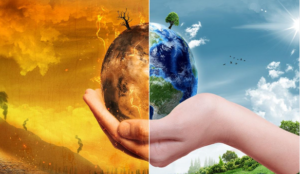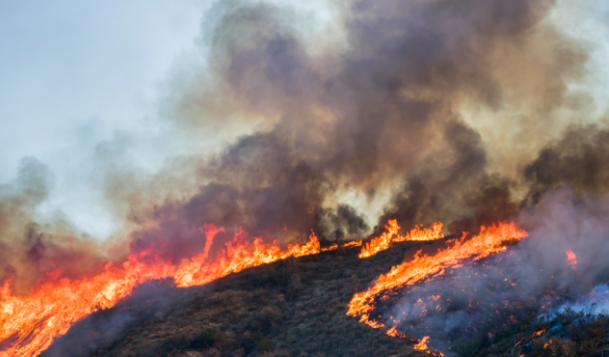
Climate change is a relentless force shaping our world today, with a spectrum of effects reverberating across the planet. From rising temperatures to extreme weather events, the consequences of climate change are becoming increasingly apparent. This article delves into the multifaceted impact of climate change, exploring the current state of affairs and highlighting the urgent need for collective action.
Rising Temperatures
One of the most conspicuous signs of climate change is the relentless rise in global temperatures. Over the past century, the Earth’s average temperature has increased by approximately 1.2 degrees Celsius, a trend that shows no sign of abating. This warming has far-reaching implications for ecosystems, weather patterns, and human society.
Higher temperatures have led to more frequent and severe heatwaves, endangering human health and agriculture. In recent years, cities around the world have experienced record-breaking heat, with prolonged heatwaves causing heat-related illnesses and fatalities. Additionally, crops and livestock are increasingly vulnerable to heat stress, threatening food security.
Altered Weather Patterns
Climate change has also disrupted weather patterns, resulting in an uptick in extreme weather events. Hurricanes, cyclones, and typhoons have become more intense and frequent, wreaking havoc on coastal communities. Meanwhile, prolonged droughts have parched once-fertile regions, leading to water shortages and food crises.
In addition to more severe storms and droughts, climate change has also disrupted traditional rainfall patterns. Some areas are experiencing more intense rainfall and flooding, while others face prolonged dry spells. These shifts can have dire consequences for communities reliant on agriculture, as unreliable rainfall disrupts crop cycles and livelihoods.
Rising Sea Levels
The melting of polar ice caps and glaciers, driven by rising temperatures, is causing sea levels to rise at an alarming rate. Coastal communities worldwide are on the front lines of this crisis, as higher sea levels contribute to coastal erosion and increased vulnerability to storm surges.
Low-lying island nations are particularly imperiled, with some facing the prospect of complete submersion in the coming decades. In densely populated coastal cities, the encroachment of seawater threatens infrastructure, displacing millions and exacerbating the risk of conflict over dwindling resources.
Biodiversity Loss
The impact of climate change poses a grave threat to the world’s biodiversity. As temperatures rise, ecosystems are being disrupted, and species are struggling to adapt or migrate to more suitable habitats. This has led to an unprecedented rate of species extinction.
Coral reefs, for example, are dying at an alarming rate due to coral bleaching, a consequence of warming ocean waters. Likewise, polar bears are struggling to find food as their icy hunting grounds melt away. The loss of biodiversity not only diminishes the beauty of our planet but also threatens the delicate balance of ecosystems that humanity relies upon for essential services like pollination and clean water.
Health Impacts
Climate change has significant implications for human health. As temperatures rise, the spread of infectious diseases like malaria and dengue fever is expanding into new regions. Heat-related illnesses, such as heatstroke and dehydration, are becoming more common during heatwaves. Additionally, air quality is deteriorating in many urban areas due to increased wildfires and smog, leading to respiratory problems.
Economic Consequences
The economic toll of climate change is substantial. Extreme weather events, such as hurricanes and wildfires, result in billions of dollars in damage and insurance claims each year. Agriculture, too, is affected, with crop yields declining due to changing weather patterns and increased pest pressures.
Moreover, businesses are increasingly recognizing the risks associated with climate change, from supply chain disruptions to stranded assets in fossil fuel industries. Transitioning to a low-carbon economy is not only necessary for the planet’s health but also for long-term economic stability.
The Need for Action
In the face of these myriad challenges, it is clear that action on climate change is imperative. Transitioning to renewable energy sources, reducing greenhouse gas emissions, and implementing sustainable land and water management practices are crucial steps.
International cooperation is also essential. The Paris Agreement, a global effort to combat climate change, seeks to limit global warming to well below 2 degrees Celsius above pre-industrial levels. However, more ambitious efforts are required to meet this goal and mitigate the worst impacts of climate change.
Conclusion
The impact of climate change is an existential threat that touches every aspect of our lives, from the air we breathe to the food on our plates. Climate change is already impacting the world with rising temperatures, altered weather patterns, rising sea levels, biodiversity loss, health issues, and economic challenges. We urgently require emissions reduction, adaptation, and planet-saving for future generations. Moreover, the time to act is now, for the cost of inaction is too high a price to pay.

